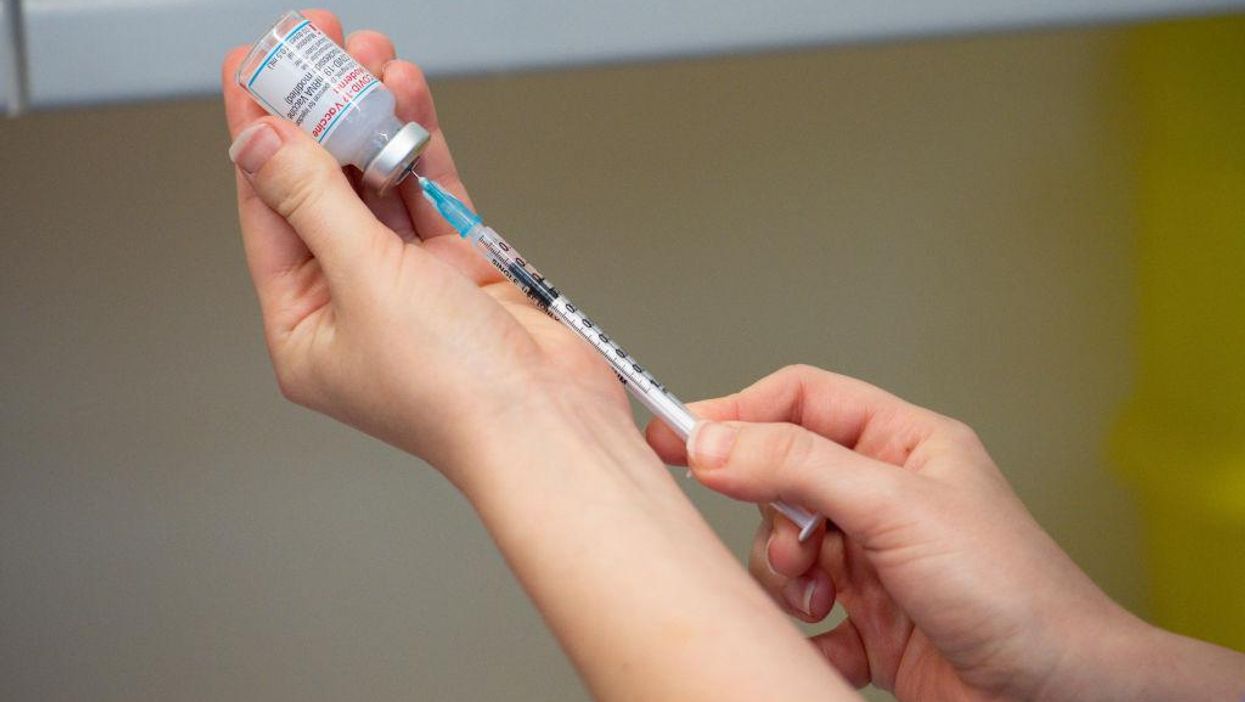
Jacob King - WPA Pool/Getty Images

European regulators are investigating reports of heavy menstrual bleeding and the absence of menstruation in women who have received an mRNA COVID-19 vaccine.
The European Medicines Agency's safety committee said Friday it is reviewing reports that the COVID-19 vaccines from Pfizer/BioNTech and Moderna are disrupting women's menstrual cycles, Reuters reported.
The agency said it is not yet clear whether there is a causal link between the disorders and the vaccines. Women's menstrual cycles can be affected by a range of underlying medical conditions, as well as from stress and tiredness, the EMA said. Though there are reports that women have had unusual menstrual cycles after being infected with COVID-19.
A recent study found that mRNA vaccines may be linked to small, temporary changes in a woman's menstrual cycle. Researchers at the Oregon Health & Science University in Portland found that those who received their first dose of a COVID-19 vaccine waited 0.71 days longer on average for their next menstrual cycle when compared to their cycles before vaccination.
The study also noted that unvaccinated women with normal menstrual cycle histories experienced a 0.07-day increase in cycle length on average, as TheBlaze previously reported. The study was funded by the National Institutes of Health, which collected data from nearly 4,000 users of a smartphone app that tracks menstrual cycles.
The EMA previously said in December that it has not established a link between changes in menstrual cycles and COVID-19 vaccines, after a study from Norway suggested some women experienced heavier periods following vaccination.
The EMA's Pharmacovigilance Risk Assessment Committee said it will review all available data to determine if there's a link between the COVID-19 vaccinations and unusual menstrual cycles, including reports from patients and doctors, clinical trials, and published studies.
The agency added that there is no evidence to suggest that COVID-19 vaccines affect fertility, in a response to rumors circulating social media that the vaccines have an impact on fertility.
A NIH-funded study published in January looked at more than 2,000 couples and found that COVID-19 vaccination did not impact the chances of conceiving a child in either men or women. However, couples had a slightly lower chance of conception if the male partner had been infected with the SARS-CoV-2 virus within 60 days before his partner's menstrual cycle, which suggested that COVID-19 may reduce male fertility.
“The findings provide reassurance that vaccination for couples seeking pregnancy does not appear to impair fertility,” said Diana Bianchi, M.D., director of NIH’s Eunice Kennedy Shriver National Institute of Child Health and Human Development.